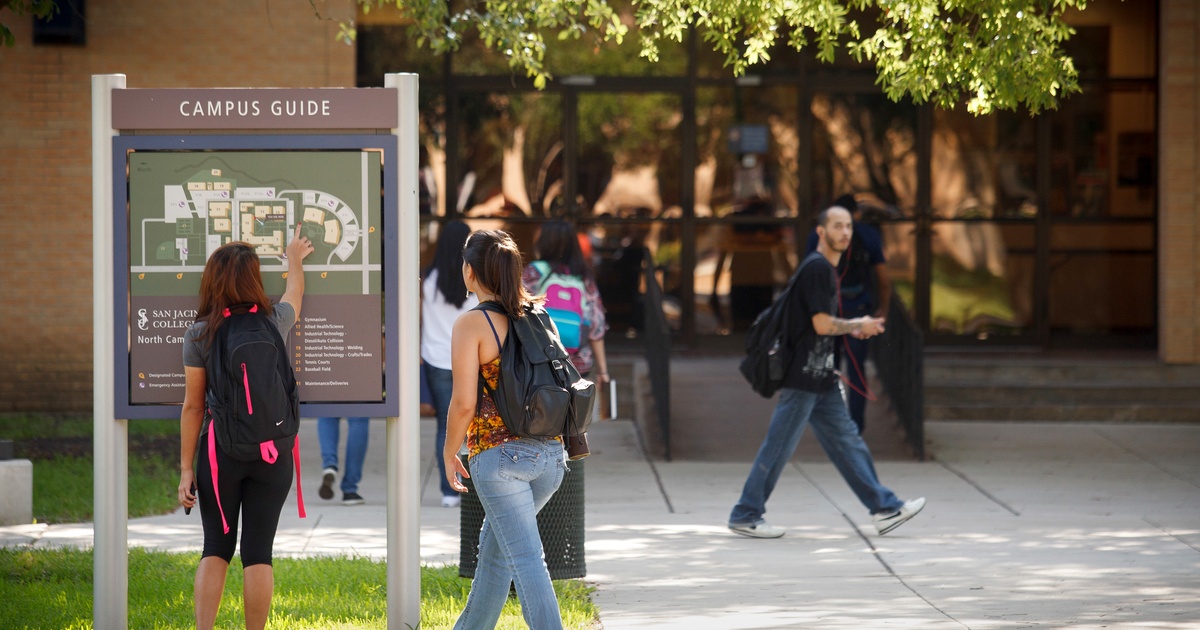When Texas college students return to their campuses after the winter break, they’ll discover the lights are still off in their campuses’ diversity offices.
That’s because a new law that outlaws such work at the state’s higher education institutions goes into effect, Jan. 1.
Another 29 laws also will go into effect in the new year that aim to change the economy, tax codes and the criminal justice system.
…
Dissolving diversity, equity and inclusion efforts at public universities: Senate Bill 17 requires public universities to end so-called diversity, equity and inclusion work. Universities will also be unable to offer training on diversity and inclusion for its faculty and staff, or require diversity statements in hiring processes. Universities must also confirm to the Legislature between legislative sessions that they are in full compliance.
…
The law’s restrictions do not apply to class instruction, materials needed for federal grant applications or student organizations on campuses, but multiple university officials have said the law has made hiring new faculty more difficult.



An unpopular opinion I’m sure (for reasons), but do these offices actually achieve anything besides bloating up the already obese administration that sucks money away from the academic side of the university?
Ah yes, suddenly everyone cares about where money is going when discussing something they dislike.
The thing about diversity and inclusion is that there are a lot of systemic barriers that people don’t see until they go looking for them. People who live with disadvantages learn to adapt to them and frequently don’t vocalize them to avoid being a burden. Contrary to conservative narrative, these offices do more than promote affirmative action. These offices examine historical architecture to make them more accessible to the handicapped, proactively identify/resolve problems for university brands, provide funds and support to clubs, and help with employment opportunities for students.
Will the closure of these offices immediately create problems for campuses? Probably not. Will there be other issues that pop up that these departments exist to prevent? Almost certainly
It’s absolutely bonkers to me that people don’t believe there is intrinsic value to mechanical diversity. When I taught student engineering teams, the effects could not have been more obvious. Homogenous groups of “friends” would produce the most lazy, derivative and uncreative work, while it was always that last team of stragglers who had never spoken to each other who would consistently produce actual groundbreaking projects. Most of the time these were middle of the road students in terms of their grades as well.
Being forced outside of a comfort zone literally activates different parts of your brain. It forces you to approach problem solving and teamwork from first principles instead of conditioned and subconscious hierarchy. Seeing this first hand has probably been one of the most formative experiences for me, and I will continue to preach this gospel wherever I go. Just add it to the long list of reasons Texas can suck my tits.
Is there something wrong with your tits?
Ah yes, any disagreement must come from the “other team” and hatred or ignorance. How insightful…
As a minority who should have seen benefit from such an office, and who is not conservative by any means, all I saw from these diversity offices in college was posters for social events and regular emails from a long string of parasitic Chief Diversity Officers, while our labs and classrooms were looking increasingly dilapidated.
Do you have any evidence to back up the claims that these offices actually do anything toward achieving the stated goals? Surely they’ve been around long enough to have measurable outcomes.
How do you know that you saw no benefit?
Probably not, honestly, but I truly can’t think of a justification for making them illegal. How is outlawing diversity training and knowledge useful to anyone?
DEI exercises in other kids of businesses often seem like performative BS, if we’re being honest – IMHO, this is a really legitimate and simple question. Especially considering the impact bloated admin “costs” (salaries, etc) have on students & society (e.g. student loan debt).
Not reading all the way down, but just wanted to say I think it sucks that you got downvoted for this comment. You’ve got one less from me, anyways.
But also yeah, they do try and do things that really make a difference. Among other things, they make cross-campus connections to develop initiatives aimed at supporting students from under- represented groups – not just race or ethnicity, but also things like low-income, first generation in your family to attend, etc.
Things like this can strongly correlate with more distractions, difficulties, and obstacles in students’ lives, compared to observations of students from so-called “privileged” backgrounds. Not providing anything that those students from other backgrounds don’t have access to – quite the opposite actually.
That and I feel that forced diversity isn’t diversity at all.
Just like forcing children to eat vegetables isn’t really eating vegetables at all.
It definitely is for those the system works against.
That’s not a race/disability problem. It is a wealth problem.